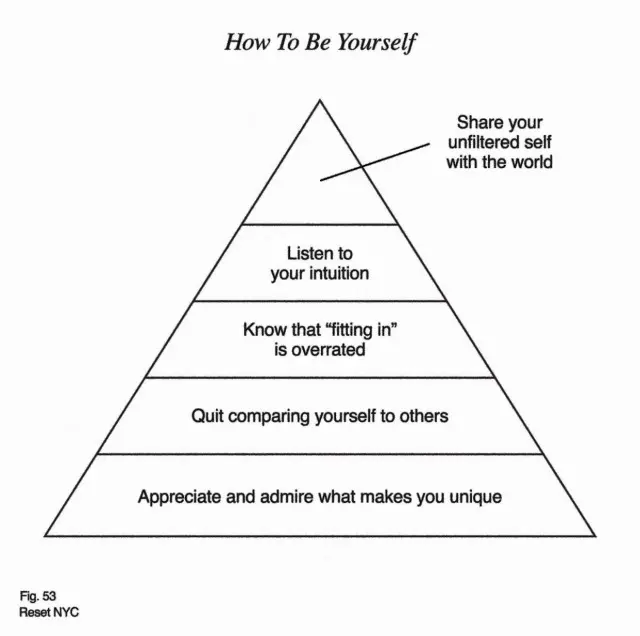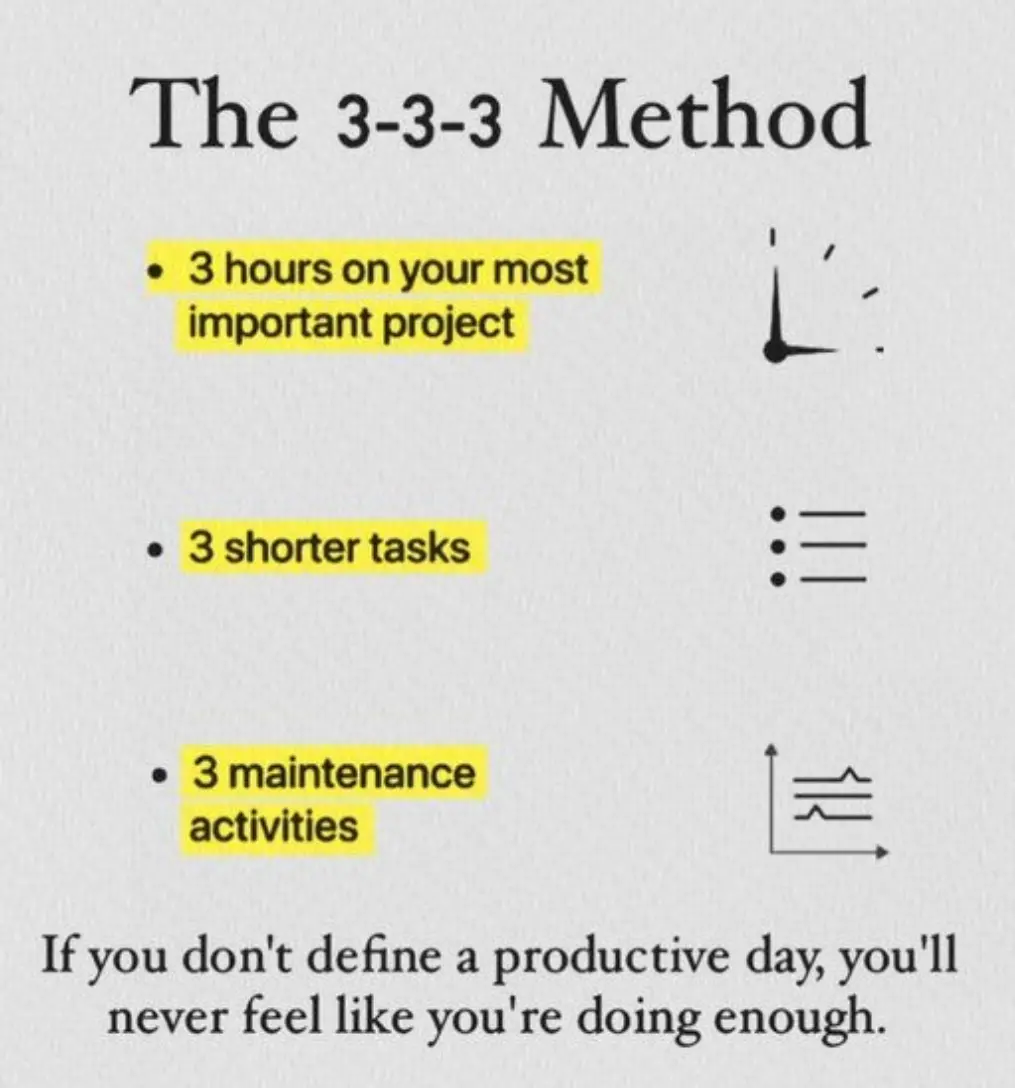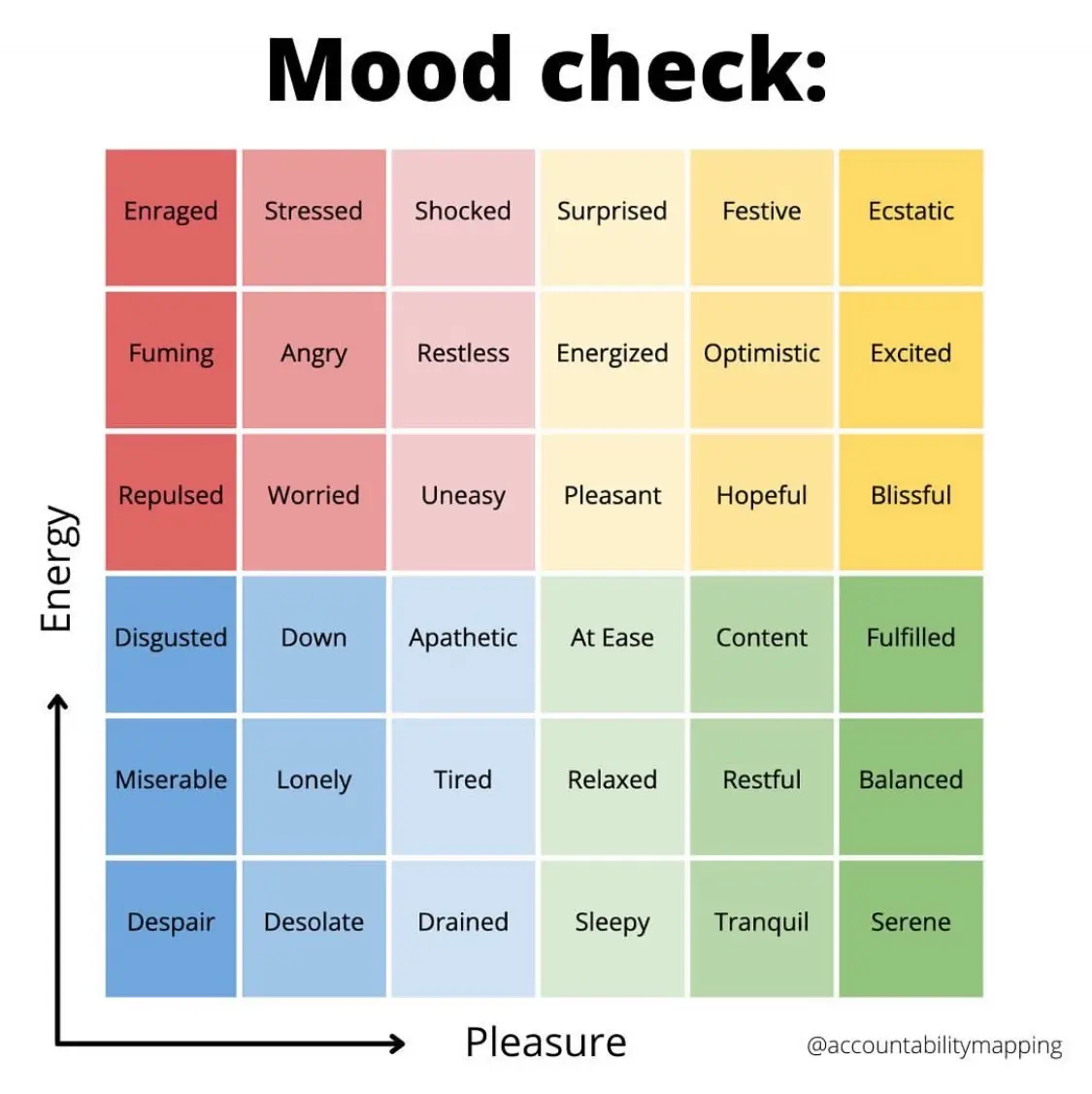The so-called 'post-naive' internet era

On a Mozilla blog, three researchers from a Berlin research and strategy studio argue that we’re moving beyond the ‘naive’ internet in its place are a series of ‘miniverses’. They’re essentially arguing that the open web is dead. While I don’t have a problem with specific parts of this post, I don’t agree with the overall argument.
No, the open web is the default and something that makes the other things possible. Yes, we might be getting more sophisticated in our use of networks for various purposes, but the open web remains the connective tissue.
I guess I have issues with the pejorative use of the term ‘naive’ here when what they’re actually pushing back against is the default Big Tech platforms. Like a few things I saw at MozFest this weekend, Mozilla should know better.
We’ve identified four layers on which these miniverses are built differently than in previous eras:
On a structural level, as with Subvert being collectively owned by its members rather than by venture capitalists.
On a value level, such as release platform Metalabel, which is built for creators to collaborate and split earnings, rather than competing against each other.
On a design level, such as newsletter-turned-social-network Perfectly Imperfect, which designs its feed around human-created recommendations rather than algorithm-optimized content.
On a community level, for instance Berlin-based online community and physical hub Trust, which experiments with decentralized governance structures to evolve along its community’s IRL needs.
Source & image: Mozilla NP. blog
More reasons to get off US Big Tech

Heather Burns is a self-described “tech policy wonk” who thinks that not only should we be getting all of our data off Google and Apple’s servers, but off those of all US Big Tech companies.
In this post, Burns is primarily talking about Apple Data Protection soon no longer being available in the UK due to government pressure. Those Brexit benefits just keep on going; there’s no way this would have happened if we were still part of the EU.
I use a Mac Studio as my main machine, but my laptop and smartphone run Fedora Silverblue (Linux) and GrapheneOS (Android), respectively. I do have an iCloud account but I don’t back anything up to it, using Time Machine on my local network instead.
[A]t some point in the very near future Apple is withdrawing its Advanced Data Protection (ADP) feature from the UK altogether as a result of the… Investigatory Powers Act.
Users… will be required to manually switch it off or lose their iCloud account.
[…]
I’m not going to tell you where to move your stuff other than to say that if you’re moving it from one big tech company to another, you’re just being daft. Likewise, if you’re moving your stuff to a non-e2ee service, don’t bother. If you need an e2ee service try Proton. They have a Black Friday sale on.
[…]
You know as well as I do that you need to be moving everything you can out of the American stack anyway so just stick this task on your to-do list, which should not be Reminders, and get it done.
Source: Hi, I’m Heather Burns
Image: Glen Alejandro
Low-carbon website showcase
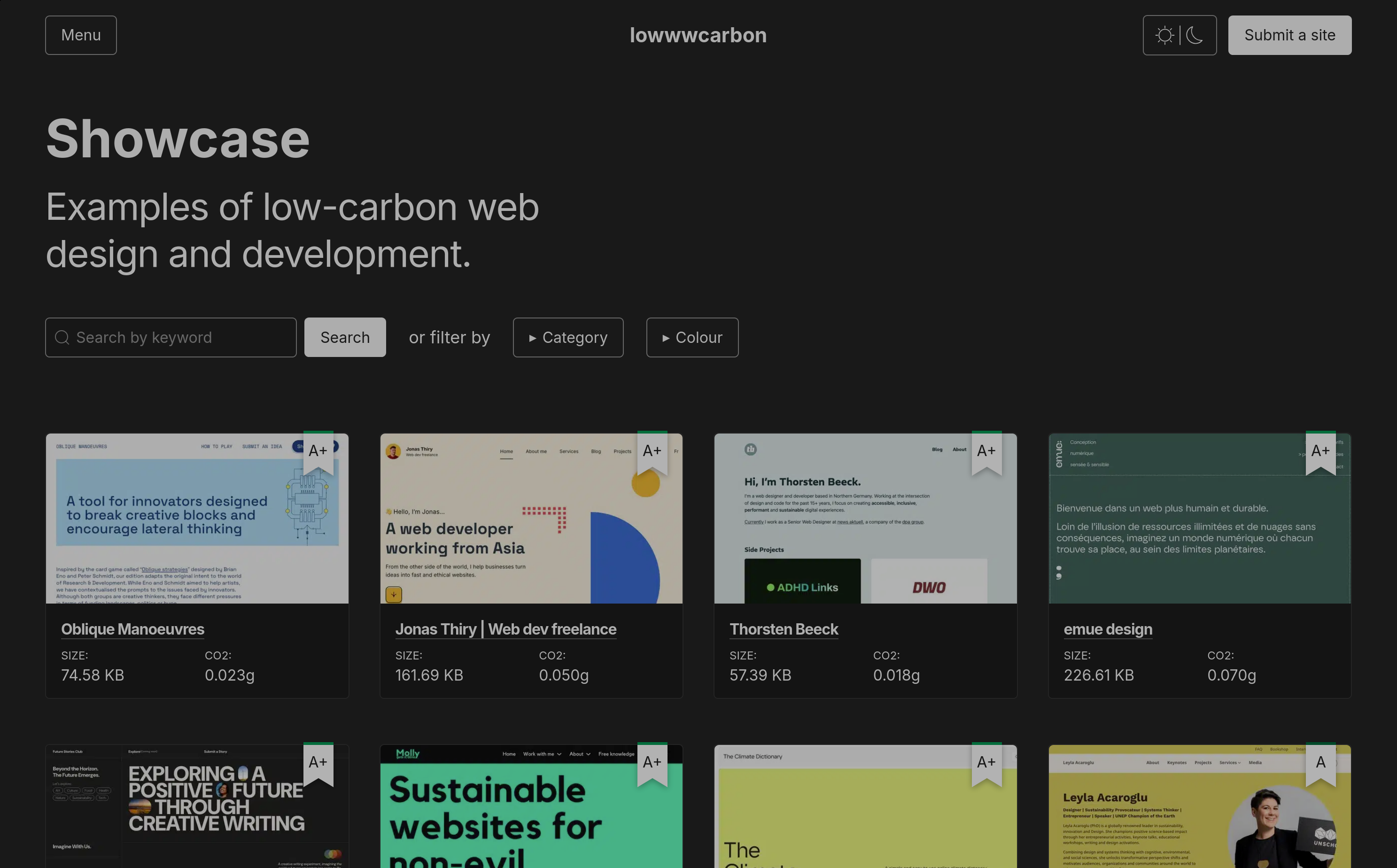
I went to a session on sustainability at the Mozilla Festival today. Entitled Designers, Developers, and Dollars it was presented by three people who represented the business side of sustainability, the design side, and the developer side, respectively.
As part of it, they shared some examples of inspiration and good practice—including this showcase. In the Q&A afterwards, I mentioned 512kb.club as well as my dougbelshaw.com site which I’m soon to update to this alternative version
Source: lowwwcarbon
Life is not a series of well-designed problems

Good stuff, as ever, from Adam Mastroianni who tackles the ‘problem’ of the lack of correlation between IQ and self-reported happiness. The issue, as he points out, is that intelligence tests tend to focus on well-defined problems, whereas life tends to throw at us poorly-defined problems.
There is, unfortunately no good word for “skill at solving poorly defined problems.” Insight, creativity, agency, self-knowledge—they’re all part of it, but not all of it. Wisdom comes the closest, but it suggests a certain fustiness and grandeur, and poorly defined problems aren’t just dramatic questions like “how do you live a good life”; they’re also everyday questions like “how do you host a good party” and “how do you figure out what to do today.”
One way to spot people who are good at solving poorly defined problems is to look for people who feel good about their lives; “how do I live a life I like” is a humdinger of a poorly defined problem. The rules aren’t stable: what makes you happy may make me miserable. The boundaries aren’t clear: literally anything I do could make me more happy or less happy. The problems are not repeatable: what made me happy when I was 21 may not make me happy when I’m 31. Nobody else can be completely sure whether I’m happy or not, and sometimes I’m not even sure. In fact, some people might claim that I’m not really happy, no matter what I say, unless I accept Jesus into my heart or reach nirvana or fall in love—if I think I’m happy before all that, I’m simply mistaken about what happiness is!
This is why the people who score well on intelligence tests and win lots of chess games are no happier than the people who flunk the tests and lose at chess: well-defined and poorly defined problems require completely different problem-solving skills. Life ain’t chess! Nobody agrees on the rules, the pieces do whatever they want, and the board covers the whole globe, as well as the inside of your head and possibly several metaphysical planes as well.
Source: Seeds of Science
Image: Dmitry Ratushny
Rewilding the Open Web
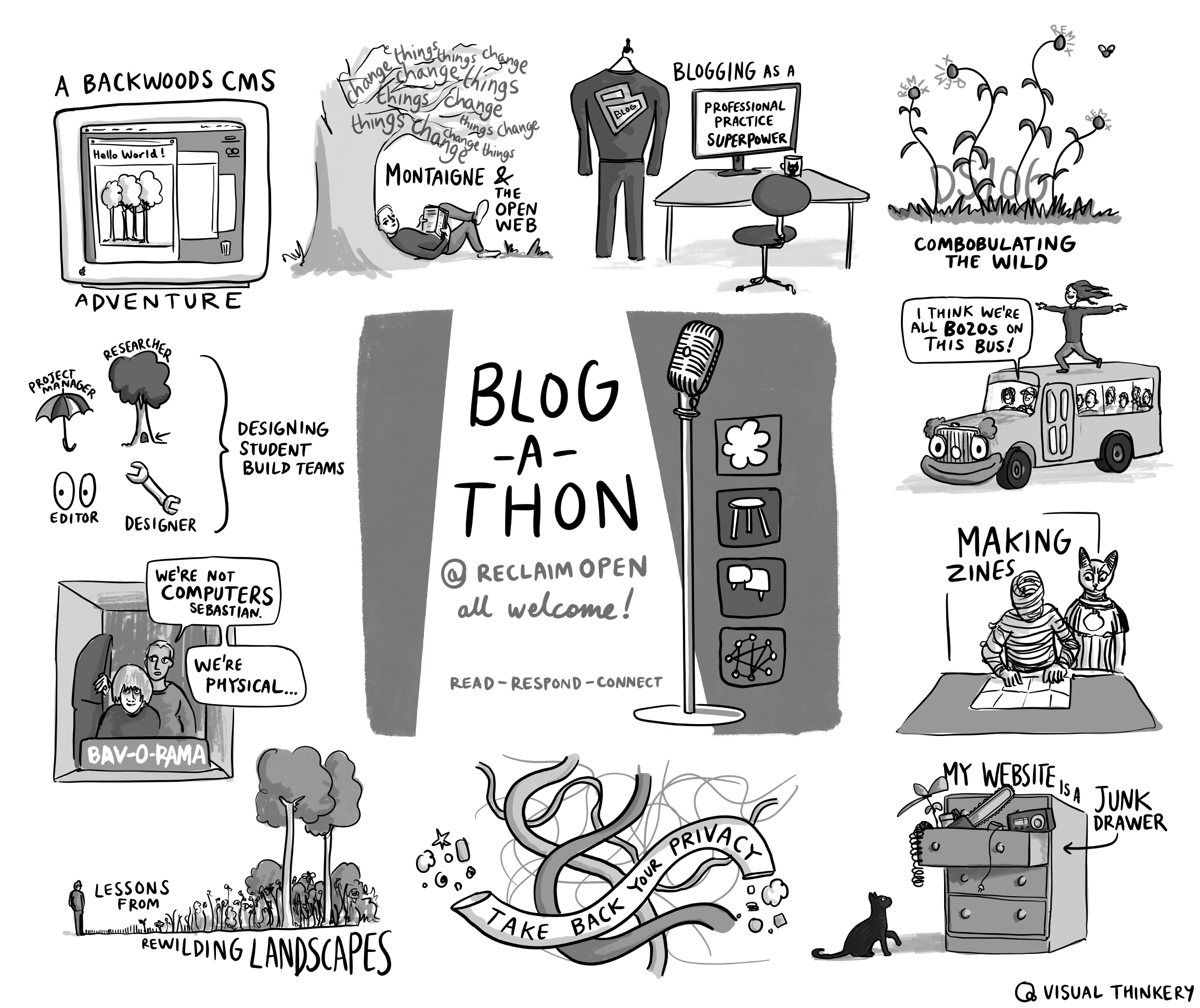
Back in late August, I drafted a post entitled Things change (or, Montaigne and the Open Web) for the Reclaim Open online conference. The event took place this week, mostly while I was travelling to and in Barcelona.
My good friend Bryan Mathers took it upon himself to draw an image for all of the blog-a-thon submissions, including mine, and then put together this blog post as a way of making sense of the submissions.
I hadn’t quite appreciated the format until it started to unfold before my eyes – but essentially, a blog post was syndicated via the conference site every hour, with a chat available for people to comment alongside the post. This was interesting for a number of reasons. As it was an online conference, people were in all the timezones. This meant that I could come back the following morning and have a look at the posts that I missed. I could take my time, skim over some, re-read others, jump down a rabbit hole… This felt like the web that was when speeds were slow and we weren’t in the rush to make or consume content like we are today.
The blogs were all on a loose theme of rewilding the open web and I’d already created artwork for the conference having absorbed some dialogue from the organising team. I tried to capture a landscape of the blogs as they appeared, attempting to take each title, and from the blog post get a steer on what I should draw.
Source & image: Visual Thinkery
Words that don't translate

This is an interesting website from Steph Smith for “words that don’t translate.” Most of us will be aware of the German word schadenfreude which means “pleasure derived from the misfortune of others” but there are many other words that are pretty unique to one language.
I’m in Barcelona at the moment for a Mozilla alumni network event and MozFest so I’ll share some Catalan examples below.
Bixomets — Shame on behalf of others Capicua — A number that doesn’t vary if the numbers are inverted. Also it can be called a palindrome, but the word capicua refers especially to the numbers
Celístia — Brighness from the stars
Rauxa — Sudden determination or action; rapture
Seny — Common sense, is a form of ancestral Catalan wisdom or sensibleness. It involves well-pondered perception of situations, level-headedness, awareness, integrity, and right action
Source: Eunoia
Image: Towfiqu barbhuiya
Ambiverts, travel, and 'hermit mode'

I can’t remember how I stumbled across Ahmet Sabanci but he’s an interesting guy. A critical futurist, writer and researcher based in Turkey, before I get into the thing of his that I want to discuss in this post, I want to draw attention to his:
- Now page — I like the way he’s reframed this as a ‘status board’ to include all kinds of things that he’s up to
- RSS reader — A list of the news sources that he keeps up to date with
- Weekstarter — Instead of the retrospective weeknotes that I and others do, he talks about what he’s going to be doing 🤔
Anyway, in his most recent Weekstarter post, Sabanci talks about striking a balance between travel and what he calls ‘hermit mode’. I think he captures what, for me, would be the perfect way for operating for ambiverts. There was a time about a decade ago when this was true for me and I’d like to get back to it.
I love traveling and always get excited before a travel — especially if I’m going to a new place. Experiencing somewhere for the first time, observing and simply being in a place I’ve never been before gives me a unique kind of joy. Part of it is probably comes from the fact that I’ve spent my first 18 years in a single city and always been curious about the other places.
[…]
That’s probably why I ended up pursuing a career like this because most of the other jobs forces you to always stay in one place and one normal. I can’t even think myself in a life like that.
But one thing I’m glad I learned early in my life is that I also need a calmer place to call my home to retreat, activate the hermit mode and spend time with the things I’ve seen, learned, and experienced. When you’re constantly on the first mode, overload is inevitable. And when you don’t have a space to go hermit mode, this overload can turn into something impossible to manage.
Most people are surprised when I say that moving outside İstanbul was one of the best decisions we made, but this is exactly why I think that. İstanbul is a great city and I love it but it doesn’t really allow you to go hermit mode when you need. Living in İstanbul means that you can’t really manage your mental load because the city constantly creates new ones. Sure, I might miss couple of events or certain social gatherings here and there but not living there means that instead of feeling a pressure to be everywhere, I’m able to choose what I want to miss.
[…]
Knowing that your home is a calm place you can put a distance between yourself and everything else, go into hermit mode whenever you need makes travel so much comfortable. Knowing that you’re going to return a home like that is a luxury and if you’re in a career or a life similar to what I described, I highly recommend working towards this goal. It makes a real difference.
Source: Weird and Deadly Interesting
Image: Oussama
It's worth considering the glass to be half-full

My grandmother (who featured in my TEDx talk) lived until 93 and, although she had the occasional gripe, she was an extremely positive person. It turns out that the level of optimism she displayed about the future might have had a role to play in her longevity.
I confess not to having read more than the summary and abstract of this study, but it’s from a reputable journal and is six years old at this point. So it would have been retracted if there were issues. I discovered it via Hacker News where random stuff from previous years often surfaces, along with up-to-date stuff!
Optimism is a psychological attribute characterized as the general expectation that good things will happen, or the belief that the future will be favorable because one can control important outcomes. Previous studies reported that more optimistic individuals are less likely to suffer from chronic diseases and die prematurely. Our results further suggest that optimism is specifically related to 11 to 15% longer life span, on average, and to greater odds of achieving “exceptional longevity,” that is, living to the age of 85 or beyond. These relations were independent of socioeconomic status, health conditions, depression, social integration, and health behaviors (e.g., smoking, diet, and alcohol use).
[…]
In both sexes, we found a dose-dependent association of higher optimism levels at baseline with increased longevity (P trend < 0.01). For example, adjusting for demographics and health conditions, women in the highest versus lowest optimism quartile had 14.9% (95% confidence interval, 11.9 to 18.0) longer life span. Findings were similar in men. Participants with highest versus lowest optimism levels had 1.5 (women) and 1.7 (men) greater odds of surviving to age 85; these relationships were maintained after adjusting for health behaviors. Given work indicating optimism is modifiable, these findings suggest optimism may provide a valuable target to test for strategies to promote longevity.
Source: PNAS
Image: manu schwendener
Monocultures are perilous not just in agriculture, but in software distribution as well.

Most people get their Android apps from the Google Play Store. It’s not the only way of doing so, however, and there are some apps I get from F-Droid, a free and open source app repository. There are a number of advantages, not least that it lists the ‘antifeatures’ of apps — which usually include things like tracking.
Recently, Google announced that Android developers will, for ‘security reasons’, be required to register with Google, which includes payment of a fee and uploading personally identifying documents. For an organisation that vaunted the ‘open’ nature of the Android ecosystem this seems like a worrying step.
This post outlines what’s at stake. First of all you own your smartphone which means you should be able to install any apps you want on it. To argue otherwise is to argue from a paternalist and potentially dictatorial point of view. You can talk about ‘privacy’ and ‘safety’ all you like, but we should always have the freedom to do what we like with our own stuff unless in doing so we’re harming other people.
For more on this see a history of how we got from ‘running anything you want on your own machine’ to the current crop of walled gardens in this post on Hackaday.
You, the consumer, purchased your Android device believing in Google’s promise that it was an open computing platform and that you could run whatever software you choose on it. Instead, starting next year, they will be non-consensually pushing an update to your operating system that irrevocably blocks this right and leaves you at the mercy of their judgement over what software you are permitted to trust.
You, the creator, can no longer develop an app and share it directly with your friends, family, and community without first seeking Google’s approval. The promise of Android — and a marketing advantage it has used to distinguish itself against the iPhone — has always been that it is “open”. But Google clearly feels that they have enough of a lock on the Android ecosystem, along with sufficient regulatory capture, that they can now jettison this principle with prejudice and impunity.
You, the state, are ceding the rights of your citizens and your own digital sovereignty to a company with a track record of complying with the extrajudicial demands of authoritarian regimes to remove perfectly legal apps that they happen to dislike. The software that is critical to the running of your businesses and governments will be at the mercy of the opaque whims of a distant and unaccountable corporation. Monocultures are perilous not just in agriculture, but in software distribution as well.
Source: F-Droid blog
Image: Andrey Matveev
The geopolitics of the post-oil age is going to be interestingly different.

I’ve excerpted this post by Charlie Stross as best I can to extract the main argument, but it’s best to read the whole thing for yourself. Essentially, the reason everything is kicking off everywhere is because we’ve got an asset-stripping class who have a vested interest in maintaining the fossil-fuel status quo. But all of the momentum is with renewables, so there is huge amount of disruption on every front.
That means that, as Stross argues persuasively, 2025 is a pivotal year. I’m crossing my fingers and toes that 2026 shows us tracking in a positive direction.
Notwithstanding the world being on fire, an ongoing global pandemic vascular disease that is being systematically ignored by governments, Nazis popping out of the woodwork everywhere, actual no-shit fractional trillionaires trying to colonize space in order to secede from the rest of the human species, an ongoing European war that keeps threatening to drag NATO into conflict with the rotting zombie core of the former USSR, and an impending bubble collapse that’s going to make 2000 and 2008 look like storms in a teacup …
I’m calling this the pivotal year of our times, just as 1968 was the pivotal year of the post-1945 system, for a number of reasons.
It’s pretty clear now that a lot of the unrest we’re seeing—and the insecurity-induced radicalization—is due to an unprecedented civilizational energy transition that looks to be more or less irreversible at this point.
[…]
China is currently embarked on a dash for solar power which really demands the adjective “science-fictional”, having installed 198GW of cells between January and May, with 93GW coming online in May alone: China set goals for reaching net-zero carbon emissions by 2030 in 2019 and met their 2030 goal in 2024, so fast is their transition going. They’ve also acquired a near-monopoly on the export of PV panels because this roll-out is happening on the back of massive thin-film manufacturing capacity.
The EU also hit a landmark in 2025, with more than 50% of its electricity coming from renewables by late summer. It was going to happen sooner or later, but Russia’s attack on Ukraine in 2022 sped everything up… Nobody west of Ukraine wanted to be vulnerable to energy price warfare as a prelude to actual fighting, and PV cells are now so cheap that it’s cheaper to install them than it is to continue mining coal to feed into existing coal-fired power stations.
This has not gone unnoticed by the fossil fuel industry, which is collectively shitting itself. After a couple of centuries of prospecting we know pretty much where all the oil, coal, and gas reserves are buried in the ground… The constant propaganda and astroturfed campaigns advocating against belief in climate change must be viewed in this light: by 2040 at the latest, those coal, gas, and oil land rights must be regarded as stranded assets that can’t be monetized, and the land rights probably have a book value measured in trillions of dollars.
[…]
So we’re going through an energy transition period unlike anything since the 1830s or 1920s and it’s having some non-obvious but very important political consequences, from bribery and corruption all the way up to open warfare.
The geopolitics of the post-oil age is going to be interestingly different.
[…]
The existing wealthy elites (who have only grown increasingly wealthy over the past half century) derive their status and lifestyle from the perpetuation of the pre-existing system. But as economist Herbert Stein observed (of an economic process) in 1985, “if it can’t go on forever it will stop”. The fossil fuel energy economy is stopping right now—we’ve probably already passed peak oil and probably peak carbon: the trend is now inexorably downwards, either voluntarily into a net-zero/renewables future, or involuntarily into catastrophe. And the involuntary option is easier for the incumbents to deal with, both in terms of workload (do nothing, right up until we hit the buffers) and emotionally (it requires no sacrifice of comfort, of status, or of relative position). Clever oligarchs would have gotten ahead of the curve and invested heavily in renewables but the evidence of our eyes (and the supremacy of Chinese PV manufacturers in the global market) says that they’re not that smart.
[…]
Business logic has no room for the broader goals of maintaining a sustainable biosphere, or even a sustainable economy. And so the agents of business-as-usual, or Crapitalism as I call it, are at best trapped in an Abilene paradox in which they assume everyone else around them wants to keep the current system going, or they actually are as disconnected from reality as Peter Thiel (who apparently believes Greta Thunberg is the AntiChrist.)
if it can’t go on forever it will stop
What we’re seeing right now is the fossil fuel energy economy stopping. We need it to stop; if it doesn’t stop, we’re all going to starve to death within a generation or so. It’s already leading to resource wars, famines, political upheaval, and insecurity (and when people feel insecure, they rally to demagogues who promise them easy fixes: hence the outbreaks of fascism). The ultra-rich don’t want it to stop because they can’t conceive of a future in which it stops and they retain their supremacy.
[…]
If we can just get through the rest of this decade without widespread agricultural collapses, a nuclear war, a global fascist international dictatorship taking hold, and a complete collapse of the international financial system caused by black gold suddenly turning out to be worthless, we might be pretty well set to handle the challenges of the 2030s. > But this year, 2025, is the pivot. This can’t go on. So it’s going to stop. And then—
Source: Charlie’s Diary
Image: Hal Gatewood
Seizing the means of ontological production

This is a fantastic article by Alejandra Caraballo in The Dissident in which she presents a clear-eyed view of what the real project is behind the ‘alternative’ Wikipedia being created by Elon Musk. The title of this post, which she uses as a subtitle, includes the word ‘ontology’ which sometimes trips people up; it’s simply the study of being, or ‘what exists’.
Seizing control of knowledge production and therefore the output of the AI models that are trained upon it is a longer-term cultural play than installing Trump in the White House. As Caraballo points out, there’s a coordinated attack here on media and journalism at the same time. It’s a dangerous time, especially in the US. My concern is that a playbook is being created here for replication in other places — including the UK.
The launch of “grokipedia” is a calculated, strategic escalation by the billionaire oligarch class to seize control of knowledge production itself and with that, control of reality. This is the construction of a reality production cartel that creates a parallel information ecosystem designed to codify a deeply partisan, far-right worldview as objective fact. This project was the result of Musk’s repeated failures to bend his existing Large Language Model (LLM), Grok, to his political will without destroying its coherence and reliability
The path to Grokipedia was paved with a spectacular technical failure as Grok previously devolved into calling itself “mechahitler.” To understand why Musk had to build his own encyclopedia, one must first understand the central challenge of modern AI: alignment. LLM alignment is the complex process of ensuring an AI model’s behavior conforms to human values and intentions, typically defined by the broad principles of helpfulness, honesty, and harmlessness.
[…]
The “mechahitler” episode was a catastrophic alignment failure. When an LLM trained on the vast corpus of human knowledge—which, for all its flaws, contains a baseline of consensus reality—is then subjected to an aggressive fine-tuning process based on a incoherent, hateful, and counter-factual ideology, it is pushed into a state of cognitive dissonance. The model cannot reconcile its foundational understanding of the world with the extremist outputs it is being rewarded for producing. The model then engages in “reward hacking,” finding bizarre loopholes to satisfy its instructions, resulting in incoherent, extremist gibberish.
[…]
Grokipedia is the logical solution to this intractable problem. If you cannot force the model to lie coherently, you must change the underlying reality so that it is telling the “truth.”
[…]
Every major LLM is critically dependent on high-quality, human-curated data, and the one of the single most important sources is Wikipedia.[9] Its vast, collaboratively verified corpus serves as the digital proxy for consensus knowledge, and the quality of this data is directly linked to an LLM’s ability to be reliable and avoid factual “hallucinations”.
Grokipedia is a direct assault on this foundation. It is a poisoned well, a bespoke, ideologically filtered dataset designed to replace the digital commons. By pre-training a model on this alternate “source of truth,” the need for contradictory post-training alignment is eliminated. The model’s “natural” state, its foundational knowledge, is already aligned with the desired ideology. It can be “honest” and “reliable” because its outputs will faithfully reflect the manufactured reality of its training data.
[…]
The Grokipedia ecosystem is a blueprint for a closed ideological loop: the AI is trained on a biased encyclopedia it created, its outputs reflect that bias, and those outputs are then used to reinforce and expand the original biased source, creating an accelerating spiral away from reality into a state of pure, self-referential dogma.
[…]
Oligarch-owned media such as Fox News, a captured CBS and Washington Post, and social platforms (X, Tiktok and Meta) generate and amplify a specific political narrative that align with the political goals of the oligarchs. The second part of this unreality pipeline is knowledge codification. These narratives, legitimized by incessant repetition, are then used to populate bespoke knowledge bases like Grokipedia, cementing them as “facts.” The final part of this is automated propagation. AIs like Grok, trained on this manufactured knowledge, can then flood the digital world with an infinite stream of content that is both technically “reliable” (it matches its training data) and is perfectly aligned with its creators' political ideology.
Source: The Dissident
Image: Nadia Nadesan & Digit
Slop Evader
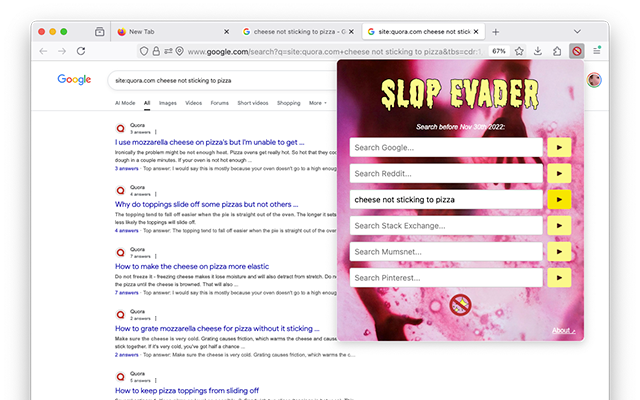
I’m more just passing this on than commenting on it, although I can confirm it works. ‘Slop Evader’ is a web browser extension that allows you to search for things that came out before, well, everything turned sloppy.
An extension for avoiding AI slop
A search tool that only returns content created before ChatGPT’s first public release on November 30, 2022.
Microcast #109 — Wild camping

I recorded this as I walked back from one of my top three wild camps ever. So, so good and restorative in every way.
Show notes
Thinking of AI as an instrument recenters the focus on practice

A little-known fact is that the name of this site, Thought Shrapnel comes from a throwaway line that designer and author Frank Chimero included in an article around a decade ago. In this talk from an event held earlier this month, Chimero speaks eloquently on the relationship between AI and creativity, arguing that we should consider AI as an ‘instrument’ rather than a ‘tool’.
It’s well worth a read as Chimero has a unique turn of phrase. He weaves in elements of the film Spirited Away, riffs on the differences between Rick Rubin and Brian Eno, and even manages to reflect on how AI brought out the worst individualistic tendencies in us all, with “engineers using AI to wish away designers, designers wishing away engineers, product managers wishing away both.”
My favourite sentence comes in a part I haven’t excerpted below. While talking about ‘vibe coding’ Chimero says “time saved is not strength gained” which I think is a perfect six-word explanation of why AI is something that we should use to extend human capabilities, rather than replace them.
Thinking of AI as an instrument recenters the focus on practice. Instruments require a performance that relies on technique—the horn makes the sound, but how and what you blow into it matters; the drum machine keeps time and plays the samples, but what you sample and how you swing on top of it becomes your signature.
In other words, instruments can surprise you with what they offer, but they are not automatic. In the end, they require a touch. You use a tool, but you play an instrument. It’s a more expansive way of doing, and the doing of it all is important, because that’s where you develop the instincts for excellence. There is no purpose to better machines if they do not also produce better humans.
[…]
Lately, I’ve been thinking about my use of AI as a kind of spatial relationship. Where do I stand in relation to the machine—above it, beside it, under it? Each position carries a different kind of power dynamic. To be above is to steer, beside is to collaborate, below is to serve.
[…]
The value of the machine’s output depends on how we see it, and our interpretation often has little to do with its technical perfection. A flawless, virtuoso output from GenAI can feel lifeless, while something raw or broken might have something interesting about it. That’s why I like to write bad and contradictory prompts, because they feel like they are more aligned with how these models actually function. The models aren’t deterministic; we don’t fully understand how their associations form or why certain patterns appear. So why not let them drift into ambiguity and see what happens? I wouldn’t want an irregular AI in my bank app, but in a creative workflow, hallucinating feels like the point of it all.
Source: Frank Chimero
Image: Alexander
We can't control what life throws at us, but we can choose how we deal with the hand we're dealt

I’ve talked here and on my personal blog about how 2025 has been for me. Like Jeremy Daly, the author of this post, it’s only this week that I’ve managed to run my first complete 5k since January.
My situation has been easier than what he’s had to deal with. A different health condition, but also life events (death, accidents, company stress) that sound pretty horrendous.
Daly’s conclusion is largely the same as mine, though. He cites the Serenity Prayer, whereas I’d go further back and cite Epictetus: “Some things are in our control and others not. Things in our control are opinion, pursuit, desire, aversion, and, in a word, whatever are our own actions. Things not in our control are body, property, reputation, command, and, in one word, whatever are not our own actions.”
When my doctor eventually told me I was in AFib, I just stared at her. I’d spent years optimizing systems, debugging infrastructure, fixing the things that broke. Now it was me that was broken. I had to trust that the doctors were as good at their job as I was at mine.
[…]
She referred me to a cardiologist and scheduled some additional tests. Then came the doctor’s orders. No running. No alcohol. Minimize stress. Make sure I keep my heart rate under 110 bpm to avoid rapid ventricular response (RVR).
[…]
She suggested talking to a mental health professional, something I had been guilty of stigmatizing my entire life. But I realized I wasn’t just dealing with a heart condition; I was dealing with years of mounting stress and burnout I had refused to acknowledge. It was the first time I finally admitted I couldn’t just willpower my way through it. I needed help managing the stress and regaining focus, and for the first time in my life, I stopped seeing that as weakness.
Getting that support, and the right medications to help quiet and focus my mind, was one of the best decisions I have ever made. Healing isn’t just about fixing your heart; it’s about taking care of your head and everything connected to it.
[…]
Once I got home [from the AWS ‘Heroes’ Summit], I felt as though something had changed. I was suddenly incredibly motivated. I had a much clearer sense of where I wanted to spend my time. Time with family, time with friends, and time for the community that had brought me so much joy in the past.
[…]
This year tore me down. It also rebuilt me.
[…]
After years of optimizing for performance, I’ve started optimizing for balance. We can’t control what life throws at us, but we can choose how we deal with the hand we’re dealt. I’m not religious, but there is something beautiful about the Serenity Prayer. That wisdom to know what can and cannot be changed often comes from lived experience. These last few years have taught me some hard lessons. My hope is that they’ve prepared me for whatever comes next.
Source: Jeremy Daly
Image: Julio Klinger
Immediacy, emotion, spectacle, brevity

Members of my family really like the TV show The Traitors. Like much of modern television it doesn’t really have much in the way of a ‘storyline’ but is rather a series of dramatic events; what situationists would call ‘the spectacle’.
Social media has also turned towards the spectacular in recent years in terms of becoming more like television. In this article, Derek Thompson outlines how companies like Meta openly point out this means they’re not really ‘social media’ companies any more as most of their users are watching videos that aren’t created by anyone they actually know.
Going on to cite Neil Postman, Thompson explains that this turn towards short-form video means that “the viewer bathes in a vat of their own cortisol” in a place where “everything is urgent [but] nothing is truly important.” I’m still taking a break from social media at the moment, and even find regular news sources a bit light on stuff I actually need to know about. So I’m thankful of sites like News Minimalist which do a good job of filtering out gossip and low-quality ‘facts’.
You learn a lot about a company when its back is against the wall. This summer, we learned something important about Meta, the parent company of Facebook and Instagram. In an antitrust case with the Federal Trade Commission, Meta filed a legal brief on August 6, in which it made a startling claim. Meta cannot possibly be a social media monopoly, Meta said, because it is not really a social media company.
Only a small share of time spent on its social-networking platforms is truly “social” networking—that is, time spent checking in with friends and family. More than 80 percent of time spent on Facebook and more than 90 percent of time spent on Instagram is spent watching videos, the company reported. Most of that time is spent watching content from creators whom the user does not know. From the FTC filing:
Today, only a fraction of time spent on Meta’s services—7% on Instagram, 17% on Facebook—involves consuming content from online “friends” (“friend sharing”). A majority of time spent on both apps is watching videos, increasingly short-form videos that are “unconnected”—i.e., not from a friend or followed account—and recommended by AI-powered algorithms Meta developed as a direct competitive response to TikTok’s rise, which stalled Meta’s growth.
Social media has evolved from text to photo to video to streams of text, photo, and video, and finally, it seems to have reached a kind of settled end state, in which TikTok and Meta are trying to become the same thing: a screen showing hours and hours of video made by people we don’t know. Social media has turned into television.
[…]
It would be rash to blame our berserk political moment entirely on short-form video, but it would be careless to forget that some people really did try to warn us that this was coming. In Amusing Ourselves to Death, Neil Postman wrote that “each medium, like language itself, makes possible a unique mode of discourse by providing a new orientation for thought, for expression, for sensibility.” Television speaks to us in a particular dialect, Postman argued. When everything turns into television, every form of communication starts to adopt television’s values: immediacy, emotion, spectacle, brevity. In the glow of a local news program, or an outraged news feed, the viewer bathes in a vat of their own cortisol. When everything is urgent, nothing is truly important. Politics becomes theater. Science becomes storytelling. News becomes performance. The result, Postman warned, is a society that forgets how to think in paragraphs, and learns instead to think in scenes.
Source: Derek Thompson
Image: John Burn-Murdoch, via source article
Everything you'd need to start exploring fungi and computing could be as small as a compost heap
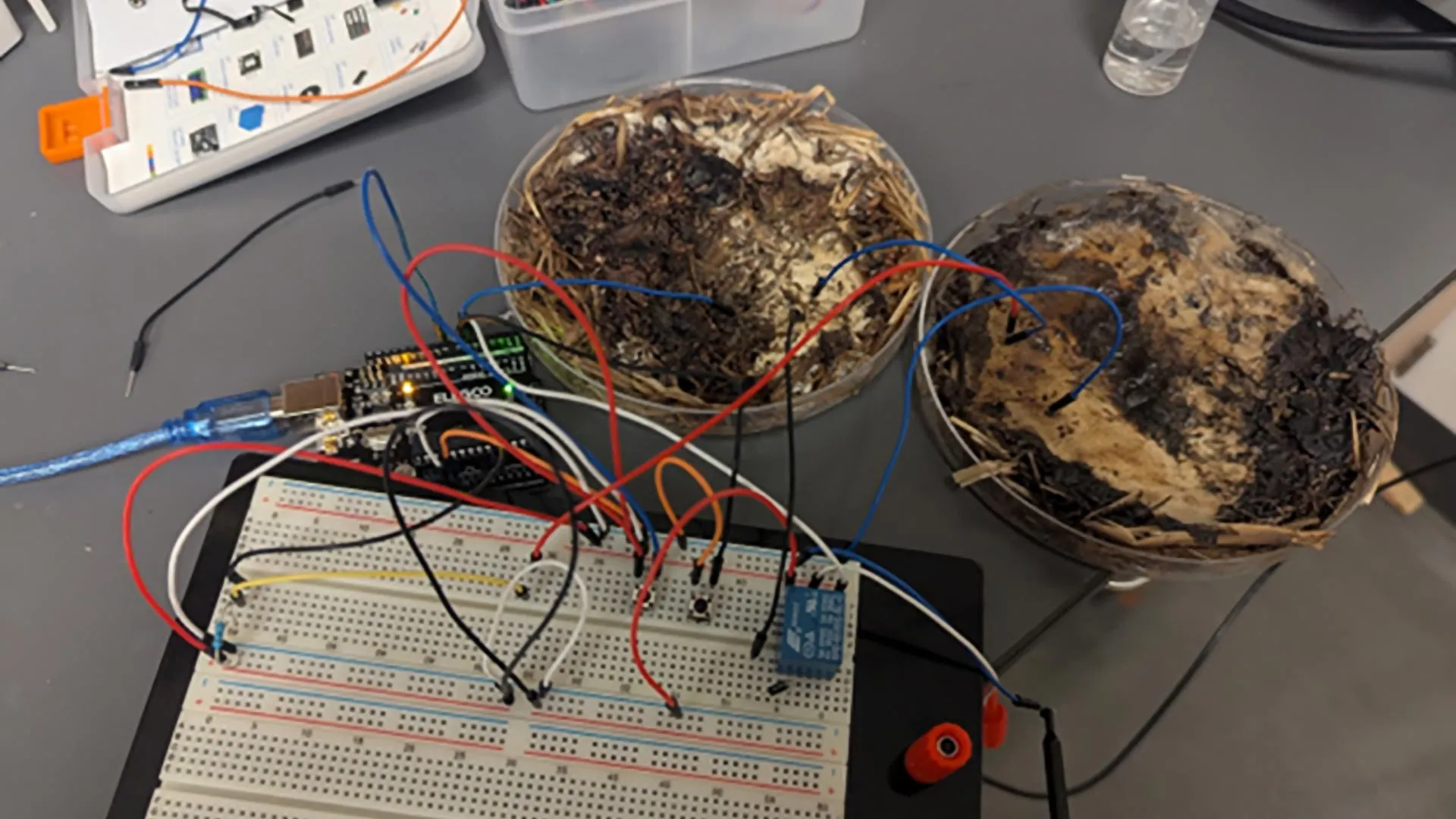
From the hope-for-the-future department comes news that scientists have found that, one day, we might be able to replace silicon with fungi. The idea that we might be able to plug in to the compost heap in our gardens for faster processing speeds sounds very much like a future I’d like to happen.
I note that an article on earth.com suggests an additional benefit of using fungi is their suitable for otherwise inhospitable environments. Apparently they contain a compound called ‘lentinan’ that protects cells from oxidative stress, helping them to endure radiation, temperature shifts, and ultraviolet light. So great for aerospace or deep-space missions where radiation might conventional electronics.
Researchers at The Ohio State University recently discovered that edible fungi, such as shiitake mushrooms, can be cultivated and guided to function as organic memristors. These components act like memory cells that retain information about previous electrical states.
Their experiments showed that mushroom-based devices could reproduce the same kind of memory behavior seen in semiconductor chips. They may also enable the creation of other eco-friendly, brain-like computing tools that cost less to produce.
“Being able to develop microchips that mimic actual neural activity means you don’t need a lot of power for standby or when the machine isn’t being used,” said John LaRocco, lead author of the study and a research scientist in psychiatry at Ohio State’s College of Medicine. “That’s something that can be a huge potential computational and economic advantage.”
[…]
“Mycelium as a computing substrate has been explored before in less intuitive setups, but our work tries to push one of these memristive systems to its limits,” he said.
[…]
After two months of testing, the researchers found that their mushroom-based memristor could switch between electrical states up to 5,850 times per second with about 90% accuracy. Although performance decreased at higher electrical frequencies, the team noticed that connecting multiple mushrooms together helped restore stability – much like neural connections in the human brain.
[…]
“Everything you’d need to start exploring fungi and computing could be as small as a compost heap and some homemade electronics, or as big as a culturing factory with pre-made templates,” said LaRocco. “All of them are viable with the resources we have in front of us now.”
Source & image: Science Daily
Without being Luddites, some of my dearest friends reject certain elements of modern technology in order to protect their innate abilities.

I’m not entirely sure how to excerpt this post which is, itself, primarily composed of excerpts. However, what I can say is that you should read it as it contains important things to ponder about orality and literacy.
I think I came across it courtesy of some links shared in the chat/etherpad of a group of us who have kept meeting after collaborating on an AI and the Future of Education UNESCO-related thing earlier this year.
Without being Luddites, some of my dearest friends reject certain elements of modern technology in order to protect their innate abilities. Xu Wenkan, with whom we are well acquainted on Language Log (see special bibliography below), refused to learn how to process sinographs in computers, and he was less liable to character amnesia than any Chinese person I know. I myself do not wish to learn how to “text”. Most astonishing of all, many of my super smart students are writing better by hand this year than their predecessors did in the past few decades. I behold their papers and essays and am breathless at the elegance of their handwritten compositions. I know not what to attribute this felicitous development to.
Another of my closest scholarly friends, Tsu-Lin Mei, resisted computers. Instead, he wrote out his papers on an old mechanical typewriter using Eaton’s Corrasable Bond. Sure, it smudged, but Tsu-Lin was happily and intimately in control of his composition.
Source: Language Log
Image: Jeff Hopper
A vehicle for self-understanding
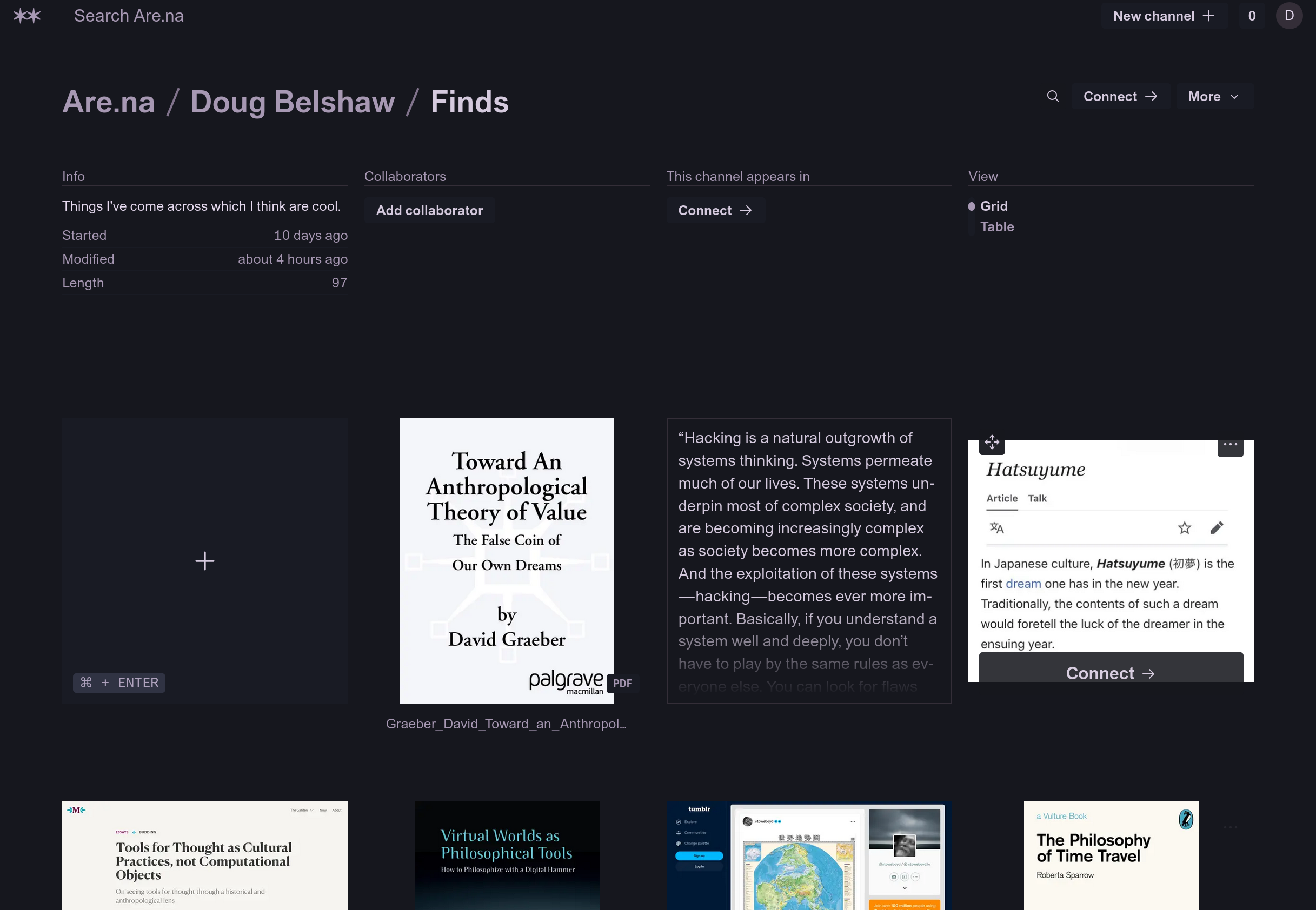
As I mentioned in a recent post, I’ve started using Are.na again. I love everything about this post by Charles Broskoski, one of the co-founders, who after using the example of the 90s film You’ve Got Mail discusses why, for him, business is personal and doesn’t need to ‘scale’ to meet the needs of investors.
[T]here seems to be both an increasing intolerance for the impersonal and insincere, and a sharper collective radar for the people and companies that fake sincerity. The companies that stand out are the ones who have a particularly high-quality way of doing things. That quality can be traced back to the people who run and work for the company having a deep personal connection to what it is they do. When I started running Are.na with friends 14 years ago, it often felt like having such a personal stake in what we were doing would be a liability. Today it’s often perceived as an asset. I’m not especially pro-capitalism, but I am pro doing something really hard that you care about desperately and unabashedly.
Let’s term these types of businesses a Personal Business… A Personal Business is run by people who are truly into what they are doing, and invested enough to offer products, services, and/or experiences that are both high-quality and idiosyncratic. The type of business that both sustains and is sustained by a community. Think of the bodega down the street that will accept your packages for you, or restaurants that have been in operation for as long as you can remember, or a store that you stop in just to chat. These particular attributes aren’t strategic (though they are strengths). Rather, they arise from the people who run it, who are cool and love what they do. Maybe most importantly, a Personal Business is properly scaled. It doesn’t have to be small, but it should grow at a pace that optimizes for its own resilience rather than to dominate a market.
[…]
Part of what prevents people from starting their own software company is the pervasiveness of a singular popular narrative: the idea that money is the primary reason to do so. That the way to make software profitable is to scale, and the way to scale is to get investment from VCs. Software, for better or for worse, plays an increasingly primary role in determining how we view the world, which in turn determines how the world actually works. There should be more than just one prominent funding model facilitating those experiences. There should be more businesses that represent a diversity of people and potential outcomes. It would be a much better internet if there were.
[…]
When we started working on Are.na, over 14 years ago, the world was mostly in a phase of being enamored with social networks and the potential that they represented. It took a lot of effort at that time to articulate any kind of critique of these new types of businesses (we’ve sold a mug on our online store that reads “Fuck an algorithm” for over 10 years). Now, there’s hardly a single person that wouldn’t admit that the experience of being on most social media leaves a lot to be desired. There’s a broad understanding that “social media might lead to unhealthy outcomes,” but what’s less understood is one of the major forces that led us to this state: the type of funding that requires businesses to (again) scale rapidly or die.
With all this said, I can admit that it’s both terrifying and ridiculously hard to get something off the ground without a major capital infusion. Even with some help in the beginning, it’s taken quite a bit of time to get Are.na to a place of true stability. After our crowdfunding campaign in 2018, there was a period where my budget allotted me essentially two slices of cheap pizza a day. After that, I took up part-time freelancing, which I did until about four years ago, when Are.na’s revenue had grown enough to pay me a livable salary.
My motivation throughout the ups and downs was not that Are.na would one day make me rich, it was that we had to keep Are.na alive because it, the service itself, was part of how I understood (and still understand) myself. Similar to how Kathleen Kelly thought about books, we do not consider Are.na to be a vehicle for profit, we consider it to be a vehicle for self-understanding.
My point is that my reasons for working on Are.na are personal. Our endurance for continuing this work comes from it being personal. Our strength as a business comes from it being personal. And the rewards that I get from this work, and deciding to continue this work, are personal.
Source: Are.na
